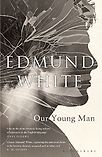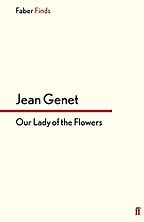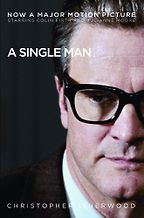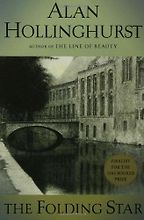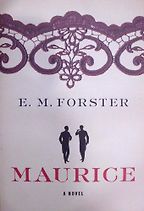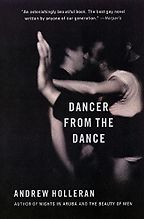Do you still feel as inspired as a writer today as you did, say, a couple of decades ago?
Well, a lot of people have said that Jack Holmes and His Friend is my best book, so I guess I’m still writing at the height of my powers. I teach writing, so I have to constantly think about writing problems.
Is the writing process for you pleasurable or angst-ridden?
It’s both angst-ridden and pleasurable. It is pleasurable to finish, I suppose. It’s always angst-ridden to write, with some stretches of pleasure. But it does seem to me that writing a novel is so precarious. It’s as though you’re carrying a bucket of water up a hill and you’re not quite sure you’re going to make it.
But you always seem to make it. Or are there times you haven’t?
I think I wrote three or four novels before one was published, so I certainly know what it’s like to write something and not have it be successful or accepted. Like every writer I’ve been criticised for some of my work. A couple of my novels are considered real failures.
How do you react to criticism? Do you ignore it or do you take it on board?
Sometimes it serves as a useful corrective. One of the things I have been very criticised for, even in Jack Holmes and His Friend, is being too explicitly sexual. I don’t think I’ve toned that down at all, as it’s something that interests me. But I’m not surprised when critics attack me for it.
Are they critical because it is gay sex? Do you think they would be less critical if it was heterosexual?
I think that in America especially, and in England too, there are a lot of people who are puritanical. They love to tell you that sexual writing is either boring or ludicrous. I think those are two ways of registering shock.
Do you think you would be such a prolific writer – or even a writer at all – if you weren’t gay? I remember you once said that when you were young you wrote about gay themes as a form of therapy.
For sure, in my early writing I felt like I was drowning and that writing was the only way of putting my head above the water, but the water was constantly rising. I think I had so many mental problems when I was young and I was constantly in therapy. That was certainly true for my teenage years and my twenties. I think that after I was 30 things changed a lot and I began to take more pleasure in the craft of writing and see novels as almost problems to be solved – artistic problems rather than psychological ones.
You teach creative writing and have done so for many years. You once said you found teaching in the early years a very useful education for yourself as a novelist. Do you still find that today?
I used to teach literature courses and that was certainly useful to be able to examine how books were put together. Now I only teach creative writing seminars and workshops. It’s instructive in a different way. For one thing, it keeps me in touch with how young people feel and the things they are thinking about and the way they are talking. For another, I’m constantly thinking about the construction of stories and novels. Issues like suspense and tension, characterisation, dialogue, percentages of dialogue to description and so on. All those rather technical issues get discussed in class and I think they are ones that I’m always thinking about and that must be useful for a writer.
So you can never stop building your knowledge.
I think that’s true. Reading established writers and classics is another way. I always hate when writers – often quite famous writers – will say they don’t read fiction and they only read biographies. I think that’s betraying the craft. Even if it was true, I wish they wouldn’t say it. I think that the truth is that you learn a lot from reading other people’s novels, including bad ones.
For the purposes of this interview we are looking at your favourite works of gay fiction. But outside of this genre, what writers have influenced you?
I love Nabokov. I think Lolita is one of the great books of the 20th century. I love Proust a lot. I have written a biography of Proust. I read a lot of poetry too and wrote a biography of Rimbaud.
Do you find yourself slightly pigeonholed as a chronicler of the New York gay scene of the 1970s and 1980s? Are audiences and critics resistant when you write on subjects outside this?
Well, I have tried other things and they have been dismissed or ignored. I wrote a historical novel called Fanny, which was about Frances Wright, a Scottish woman who started a utopian colony in America. The story is narrated by Frances Trollope, the mother of the author, who was herself an interesting, best-selling writer. I thought that was an amusing double portrait, but people didn’t like it. I think they thought, “How dare he write about something outside of his turf”. I wrote another book that was entirely heterosexual called Caracole, and that was really despised.
Who was it despised by? Was it the mainstream media or by gay critics in particular?
I think the mainstream ones. The gay ones just tended to ignore it because they had got the message that it wasn’t of interest to them. Gay bookstores refused to handle it, which was ludicrous because if you had been handling this writer anyway for his other work you’d think you’d want to handle it all. But then you had straight people criticise it because they didn’t quite get it. I mean it was a hard book to get because it was a sort of fantasy book. People didn’t know quite how to categorise it and I think that books that fail are always ones that are between genres or not clearly one thing or another.
Your first book recommendation is Our Lady of the Flowers by Jean Genet, whose biography you wrote. Before we talk about this particular book, I wonder if you could tell us more about his early life.
Genet was put up for adoption by his mother. He became a child of public welfare. He was taken in by a family who lived in the heart of France, a rather backward area. His [foster] parents were paid a monthly stipend by the state to look after him. As long as his foster mother was alive he got along very well with everybody. But then when she died he kind of went crazy. He was accused of lots of little crimes, of stealing things. But basically he was just filching things, he wasn’t really stealing anything important – erasers and marbles and things like that.
He was very, very bright and he was probably the brightest student in the whole département. Because of his intelligence he wasn’t put out to work at age 13 as a farm worker, the way most foster children were. He was sent to a trade school to learn printing, which was considered a great honour. But he ran away from that school almost immediately and began a life of petty crime. He was arrested many times for things like stealing a signature of a French king at an autograph store or fabric from a department store or doctoring his train ticket so that it looked as if he was eligible for a longer train ride than he’d paid for.
“What has always puzzled Americans about British gay writing is that middle and upper class people always fall in love with working-class people.”
France was very backward in a sense. It was really part of the 19th century until World War II. So just as boys in Dickens are punished terribly for very minor crimes, in the same way Genet, who never committed any big crimes, was punished very severely. He even risked being given a life sentence, but his case was pleaded by [Jean] Cocteau who said that Genet was like Rimbaud and you don’t put Rimbaud in prison. And the judge, being French, was convinced by this argument and released him. Then he went into terrible decline because he had always written in prison with the threat of a life sentence over his head and now he was free as a bird and found it hard to write. He became extremely depressed. What he finally did was to change entirely and write for the theatre.
He did write most of Our Lady of the Flowers in prison and it was published first in 1943 during the occupation. It was published very privately in an edition of just 50 copies.
It’s extraordinary that it was published at all during the German occupation.
The Germans were very puritanical and would have certainly persecuted not only the author but also the publisher if they had known about it. But it was printed privately and sold under the counter to rich homosexuals. But Genet wanted a larger audience and he removed quite a few of the pornographic passages from the original edition in order to make it more accessible to the general public.
Can you tell us more about the book itself?
It’s beautifully written. It’s a sumptuous, poetic style, which is true of several of the books on my list. But he certainly was one of the greatest stylists of all time. He earned the attention of some of the leading thinkers of the day. Sartre wrote a whole book about him and so did Derrida. Many other important writers like Cocteau wrote about him and admired him.
He invented in this book the drag queen for all literature who’s called Divine. She – the book calls her “she” even though she’s a man – is a prostitute and has many lovers. The most important is a pimp called Darling Daintyfoot. He brings home one night a very beautiful boy who’s called Our Lady of the Flowers, who is a murderer and who’s about to be executed. The book has several converging timeframes. For instance, Genet is always reminding us that he himself is in prison awaiting sentence. That’s one thread of the book. And then there’s another timeline, which is about the sentencing and execution of Our Lady of the Flowers. So those are different timelines that converge.
But there are many characters in the book and there are a lot of sex scenes. It’s a world of the ghetto really. He places his ghetto in Montmartre. If you read it in French there’s an awful lot of thieves’ slang that’s used in the dialogue. The dialogue is very raw but the narration is very elegant and elevated. So there’s a kind of contrast between the two. The dialogue is constantly reminding you that these are criminals and part of the underclass, whereas the narration is always reminding you that you should think of this as something like a tragedy by Rossini.
This book was really a lifesaver for Genet, transporting him from the underclass to the heart of literary Paris.
It’s probably what saved his life. Because he was such a good writer Cocteau discovered him and intervened on his behalf and got him freed from a life sentence. Even the president of France exonerated him. It did change his life entirely. He was somebody who had no talent, only genius. He couldn’t do anything. He didn’t have any skills. He only knew how to write the best prose of the century.
Christopher Isherwood’s A Single Man is a book I know you are very fond of. You once described it as “the founding text of modern gay literature”. Why do you think this book is so important?
Well I think it’s the opposite of Our Lady of the Flowers in one sense as it’s not metaphorical. The style is extremely chaste and simple. The action of the book takes place in a single day. The reason it’s innovative is that with George – who’s the main character in the book – there’s no ideology given about how he came to be gay or what his childhood was like. Nor is he confined to the ghetto but he’s a respected teacher. He’s an Englishman living in Los Angeles, as Isherwood was himself, and he has lots of straight friends. One of them is a woman called Charley whom he sees during the course of the book. Another straight friend is a student called Kenny whom he sees at the end of the book.
The main story is George trying to survive because his lover Jim has just died in a car accident. In fact, Isherwood’s lover Don Bachardy hadn’t died but gone to England to study at the Slade School of Fine Art.
Yes, I was going to ask you whether the book was Isherwood imagining life without Bachardy?
Exactly. The death in the book really stands for this long departure of Don Bachardy. They were reunited later but there was definitely a difficult moment for Isherwood personally. And so he writes with great feeling about the loss of a lover.
A loss he cannot reconcile himself to.
In a way it’s tragic, but in another way it’s rather peaceful in the way it’s described. The thing you have to remember about Isherwood is that he was a Hindu. He believed in Vedanta and he was a practising Hindu convert. And so, really he believed that the self was not a single thing like a stone in the middle of a peach but something more like an onion, which peeled back endlessly until it disappears. So, the beginning and end of the book show him first rising out of sleep and composing himself as a self and the end shows all those elements dissipating into death. I think this is a Hindu book without the Hinduism. You can really only understand it if you understand Vedanta. But it’s never explicitly brought into the book.
Did you see the film?
Yes, I did. I thought it was too much like a perfume ad. It was too beautiful; the people were shown to be too rich. And there was the introduction – which I thought was ludicrous – of a beautiful male prostitute. That was an episode that didn’t make sense at all. I did think that Julianne Moore who played Charley was really great in this. Also, it was a very good performance by Colin Firth.
The Folding Star by Alan Hollinghurst—why have you chosen this book?
I think Alan Hollinghurst is my favourite living writer. I think he’s extraordinary. He takes a very long time to write a book – I think he has only written five – so each one takes about six years. This one is my favourite because the writing is so beautiful.
It’s about a young Englishman, Edward Manners, who gets bored with his life in England and goes off to teach as a tutor in Flanders. He has two students, one of whom is ugly and another, called Luc, who is unbelievably beautiful. Then there’s a previous lover of Edward’s named Dawn who lived in England and who died of Aids. This is his Aids novel, I suppose. One thing I love about it is that Aids is always there but it’s never sentimentalised. It acknowledges the existence of this terrible disease but at the same time it has an incredible enshrinement of physical love and physical beauty in the affair between Edward and Luc.
There are echoes of Thomas Mann’s Death in Venice.
Yes. That’s right. But the difference is that the boy in Death in Venice never puts out. He seems to be almost unaware of his effect on Aschenbach, whereas Luc actually has sex with Edward. You’re sort of conditioned by this type of book to think that there is this older man who’s mooning after this boy and the boy will never do anything about it, but, in fact, the boy is homosexual and very generously offers his body to his teacher and seems to be smitten by him. So that is an unusual, strange moment in the book.
Back in 1999, John Updike made some comments about Hollinghurst, saying his novels were relentlessly gay in their personnel and they lacked female characters. He also objected to the detailed observations of gay sex.
Well I think that’s just because he objected to homosexuality de tout coeur. He was a very narrow-minded working-class man who, even though he rose to the heights of American fiction, nevertheless retained the values of his childhood, which were those of a working-class family. You would think that Hollinghurst would have appealed to him. He did acknowledge how beautiful the writing was, but his objection to the homosexuality was sort of like Nabokov’s objection to Our Lady of the Flowers, which he saw as a masterpiece but thought, “Why isn’t this book about women?”
Nabokov hated homosexuality and was very edgy around it, partly because his own brother was homosexual and his uncle. And he believed that it was hereditary, so he was always nervous about it. But anyway, it was a shame that Updike missed that opportunity to acknowledge Hollinghurst’s genius, because Hollinghurst is a writer who has real subject matter, unlike Updike. Updike could only write about suburban adultery and childhood memories. He had no subject matter even though he wrote 50 or so novels. One is more empty than the next. And he’s a writer who will be forgotten, except maybe for his trilogy about Rabbit.
You could argue that Hollinghurst did respond to this type of criticism by having strong female characters in The Line of Beauty, which won him the Booker Prize.
That’s true. Maybe he was nudged by the criticism. Alan Hollinghurst is a friend of mine and was actually very flattered that Updike wrote about him at all, even if negatively. In fact, he saw it mainly as a positive review.
Why have you picked Maurice, the classic from E. M. Forster?
Historically, it’s very interesting, as Forster is obviously one of the pillars of 20th-century English literature. But this is a book he suppressed during his lifetime and thought it was unpublishable, which is sort of sad if you think about it. It’s about Maurice, who’s in love with a guy he meets at Oxford called Clive. They have an affair, but then Clive gets married to a woman. Maurice comes to visit him and is rejected by Clive in his new guise as a married man. Then Maurice finds consolation with Alec the gamekeeper.
So it’s a novel that seems based on wish fulfilment, but it also has a lot of class analysis, and I think the thing that has always puzzled Americans about British gay writing is that the middle- and upper-class people always fall in love with working-class people. There is this important class theme in British gay literature which doesn’t exist in America, partly I suppose because we don’t have a class system in the same way. I mean we do have a class system, but it’s pretty well hidden even from ourselves.
It’s an interesting, groundbreaking book. Had it been published at the time that he wrote it, it would have been extraordinary, it would have opened up all kind of doors. It’s very beautiful and I think he had a real influence on Hollinghurst. People often discuss Hollinghurst as a Forster-influenced writer.
The book looks at the social implications of being gay. This was something Forster was very concerned about, opting not to publish the book until after his death and penning homosexual stories purely for his own amusement.
He would give the manuscript to other homosexual friends to read. It was designed to amuse them too. He himself had a working-class lover, Bob Buckingham.
I never quite understood that relationship. Buckingham was married wasn’t he?
Yes. But Genet was often involved with married men. I think a lot of men of that generation were only attracted to straight men. It’s something I try to take up in my book Jack Holmes and His Friend because Jack is in love with his straight friend Will. That was a very period taste. You didn’t want another homosexual in your bed; you wanted a real man who was, by definition, heterosexual. So, if that’s the case and you could only fall in love with heterosexual men, they do have a tendency of getting married to women. Then you have to deal with them. Genet actually chose the wife of one of his male lovers and built a house for them with a room for himself. Even his last lover, who was a Moroccan, Mohammed al-Qatrani – he lived with him and his wife and child.
Before we talk about your final book, perhaps you could tell us something about the New York literary group, The Violet Quill, that you and Holleran were members of in the early 1980s.
It only ever met about seven or eight times. But it did represent a real moment in gay fiction because earlier gay fiction had been addressed mainly to straight people in the form of an apology, complete with explanations about how the characters got to be gay – because they had a suffocating mother or an absent father or something like that. It was about the terrible pain they suffered and the books almost always ended in suicide.
The Violet Quill really represented a break with that tradition, in that suddenly there were in place various institutions of gay literature like good literary magazines and almost 70 or 80 gay bookstores throughout the country. Dancer from the Dance was published in 1978, which was sort of a banner year for gay fiction. Lots of books were published that year which were important, including Armistead Maupin’s Tales of the City, Larry Kramer’s book Faggots and my book Nocturnes for the King of Naples. Literature often trails politics by about 10 years – I mean, a lot of books about World War II weren’t published until 10 years afterwards, and in the same way these books came 10 years after Stonewall, which was the beginning of gay liberation.
“People love to tell you sexual writing is either boring or ludicrous.”
The function of the group was partly to claim a certain turf for each writer. So Andrew Holleran, who wrote Dancer from the Dance, his turf was Fire Island in New York. Mine was childhood, which I exploited in A Boy’s Own Story and which I read to the group as I was working on it. There was Robert Ferro and he wrote about the family and the gay child’s efforts to establish himself in the eyes of his own parents and wanting to be accepted with a lover as a couple with the same status as heterosexual siblings and their mates. So I think that was part of the function of that group. Another function was simply to provide an audience and encouragement for us as we tackled these new areas of experience, which required a certain amount of courage to write about. We all felt we had something to lose by coming out and writing about gay stuff. We had some sort of literary reputation that we were afraid of sacrificing by being identified as gay.
Can you tell us about Dancer from the Dance?
Like the Genet and the Hollinghurst books, it has a sumptuous, beautiful, poetic style, which isn’t really present in Maurice or A Single Man but which I think is a characteristic of gay writing in general. Anyway, Dancer from the Dance has some of the most beautiful, lyrical writing, plus it’s very, very funny.
It’s about Anthony Malone who is an ex-lawyer who comes from the Mid-West to New York in order to have a gay lifestyle; to dance at discos and to have lots and lots of sex. You have to remember this is a book from before the Aids era so it was the golden age of promiscuity. He’s described as being beautiful and everybody who’s gay desires him. The other main character, who barely knows him, is called Andrew Sutherland and he’s a drag queen and a speed freak and he’s very funny. He lives on Madison Avenue and is fascinated by Malone. One thing he wants to do is sort of sell Malone as a potential mate for somebody who’s rich and clean up from the transaction. At the end of the book he overdoses and Malone disappears and the Everard Baths, a large sauna of that period, burns down, killing many people. That really happened, historically.
This book has been described as a period piece about the pre-Aids era.
Yes, in the same way that The Great Gatsby sums up its era. It is very influenced by Fitzgerald, who is one of Holleran’s favourite writers.
Holleran is still writing today, isn’t he?
Yes, still beautifully. He wrote a book called Grief a few years back, which was a superb book. It’s about an older gay man who’s been nursing his parents, who have just recently died, and who’s now cut adrift and who returns to Washington DC and is living in the house of an old friend of his who has become entirely celibate because he’s afraid of Aids – he’s in mourning for his life, as you might say.
It’s a very sad book, which is also, oddly enough, a lot about Mary Lincoln, [President] Lincoln’s wife, who went mad after he and one of her children died. She became a shopaholic. She bought so many clothes her children had to have her institutionalised or else she would have dissipated their entire fortune. Anyway, it’s a sort of tribute to Mary Lincoln and a meditation on what it’s like to outlive all the people you love.
February 2, 2012. Updated: June 7, 2025
Five Books aims to keep its book recommendations and interviews up to date. If you are the interviewee and would like to update your choice of books (or even just what you say about them) please email us at [email protected]
Five Books interviews are expensive to produce. If you've enjoyed this interview, please support us by donating a small amount.

